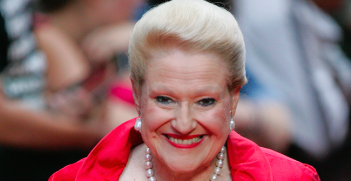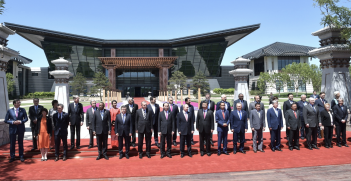Why the Y20?
Today is the last day of the Youth20 Summit. As Y20 Chair, Holly Ransom doesn’t just make a compelling argument for further engagement, advocacy and representation of the world’s youth in the G20 process, she also has a plan.
Since the formation of the G20 Leaders’ Summit in 2009, there has been no consistent approach to engaging the youth of the member state. This is surprising given that 50 per cent of the world’s population is under 27, and engaging young people in forums such as the G20 is crucial to addressing pertinent global challenges. With more than 300 million young people not in education, training or employment, the decisions (or indecisions) of the G20 have probably never had such direct ramifications on global youth. Youth require stronger advocacy, greater accountability from leaders, and a more coherent and integrated approach to G20 engagement than has been seen before. This context underpins both the theme and the focus of this year’s 2014 Youth 20 Summit: “Engaging the present, shaping the future”. It reflects a desire for this year’s G20 to both provide the opportunity for young people to inform the Leaders’ decision-making on current global issues, and to coordinate youth engagement and action to drive future-focused change around our united areas of concern. The goals for this year’s Y20 are two-fold:
1. To place youth unemployment on the G20 Leaders’ agenda and get an agreement to a bold action plan to tackle the issue, and;
2. To grow the legitimacy, reach and impact of the Y20 summit, and better integrate the voice of today’s youth into the existing G20 dialogue.
This will be achieved by being more succinct and pragmatic in the Y20 recommendations to Leaders, and by building greater traction with G20’s other engagement teams, working groups and taskforces.
Much of the responsibility for enhancing the G20’s youth engagement strategy rests with the 2014 Y20 Planning Group and the delegates to the 2014 Y20 Summit, who will work first online and then collectively in Sydney to draft key recommendations and a communiqué around the three Y20 themes for 2014: growth and jobs creation, global mobility and sustainable development.
In order to do this, the Y20 has identified four clear objectives for this year’s summit:
Strategic agenda and engagement group alignment
Aligning the Y20 agenda with the G20 and Business 20 (B20) agenda ensures that young people have the opportunity to have their voices heard on the pressing global issues that are confronting G20 Leaders.
The desire to achieve this heightened traction for Y20’s policy focuses, combined with the key outcomes of the 2013 G20 Leaders’ Declaration, informed the selection of the three aforementioned discussion topics for 2014: growth and jobs creation, global mobility, and sustainable development. The Y20 has also built a strong relationship with the B20 engagement group, participating in their Human Capital Taskforce and working with them to organise joint policy events over the course of the year. This is in addition to other engagement activities, such as presenting policy recommendations at the G20 Employment Taskforce Meetings and the Development Working Group’s Food Security Review.
Putting forward a pragmatic, evidence-based communication
This year, as part of a directive from theAustralian G20 presidency and articulated in Prime Minister Tony Abbott’s address at the World Economic Forum in Switzerland in January (entitled This Year’s G20: Getting The Fundamentals Right), the Y20 is required to generate three key recommendations to fit into a two-page communiqué. As such, there are two competing sets of challenges: firstly, to balance the needs of the Australian G20 presidency against encapsulating the ideas of Y20 delegates; and secondly, to better factually support the Y20’s policy agenda.
In meeting the first challenge, the Y20 has restructured the policy development process to generate two documents at the end of the Y20 summit: a communiqué encompassing the consensus of ideas from Y20 delegates and a new document: a three-point “policy ask” to G20 Leaders that will be the focus of a global youth-action strategy on key issues such as youth unemployment. Additionally, the Y20 has deepened its policy base by developing a knowledge partnership with Deloitte Access Economics, presenting to the G20 Employment Taskforce and workingclosely with the B20 engagement group.
Accountability
Currently, no form of accountability system exists through which G20 Leaders are tracked against how their commitments deliver on both the ideas of the Y20 and for young people in general. In 2014, the Y20 has commenced work with the Torontobased Munk School of Global Affairs’ G8 and G20 Research Group’s Dr John Kirton and Madeline Koch, the International Diplomatic Engagement Association (IDEA) and Young Diplomats of Canada to develop an accountability framework for the G20. Across all the Y20’s work, the aim is to produce succinct, action focused communications for the G20 Leaders and work with Y20 delegates to create a system of accountability through the establishment of a comprehensive multilateral global accountability framework. The Y20 is looking to synthesise the data on the last 10 years’ worth of G20 commitments – identifying the commitments that are most important to youth, and then empowering Y20 delegates to create national accountability reports that assess compliance and identify innovative solutions to achieve compliance.
Global engagement and activation
Instead of seeing the Y20 as an annual summit, we are viewing it more as a 12-month dialogue of G20 youth that will include a major international forum. Our focus will be on ensuring that dialogue and action continues from the conclusion of the Y20 Summit itself to the G20 Leaders’ Summit in November 2014. This year, much of the Y20’s policy development will occur pre-summit – this change was necessary to ensure that the Y20 policy was developed early enough to ensure the delegates’ ideas could make the greatest impact on the G20 Leaders’ agenda. In addition, we are focusing part of the Y20 Summit on the capacity building of delegates as young leaders and policy advocates, and will be working on developing individualised country engagement and action plans to further the reach of the Y20 process.
Success for the Y20 in 2014 will be defined by two outcomes. The first is getting a bolder commitment from G20 Leaders to take action to address youth unemployment. The risk of a “lost generation” of young people who are not able to find meaningful employment opportunities looms large and the Y20 provides an opportunity to engage with G20 Leaders on this very important issue. The second is through the development of a fully functioning youthengagement group for the G20, which can be a lasting legacy of the Australian G20 presidency this year. The Y20 has taken major steps to better integrate itself into the broader G20 agenda, and in taking these steps, will ensure that G20 youth will continue to have the opportunity to engage with G20 Leaders for many years to come.
Holly Ransom is 2014 Chair of Y20.
This is an extract from G20: Words into Action Brisbane 2014, to be published by Faircount Media in association with the Australian Institute of International Affairs in October 2014.





